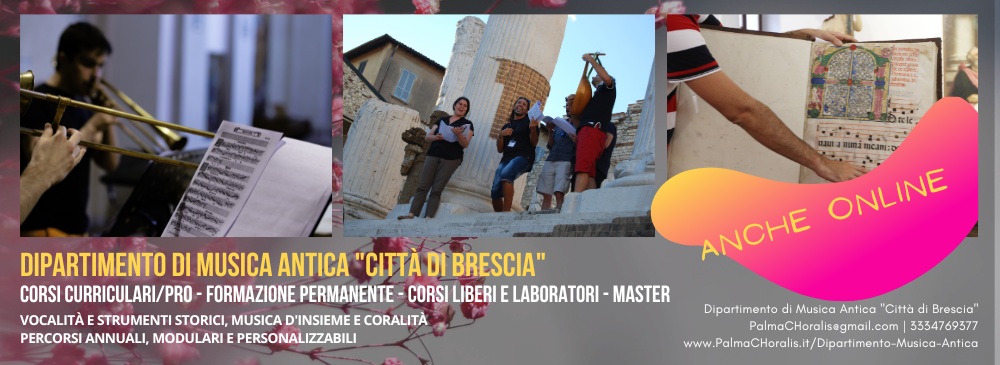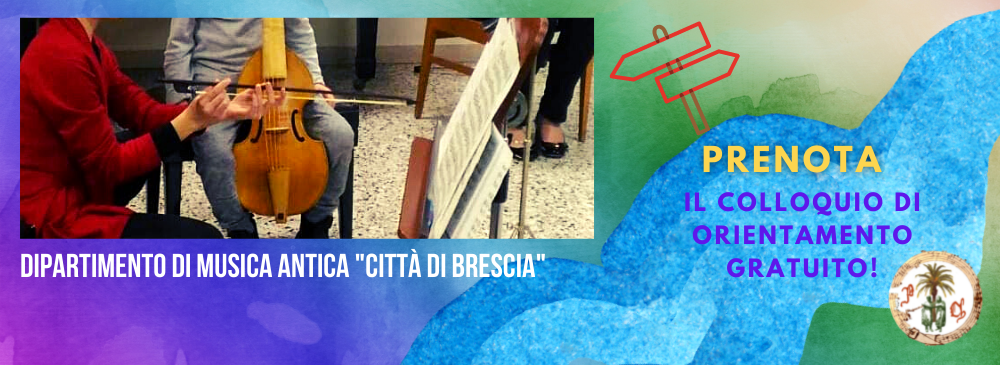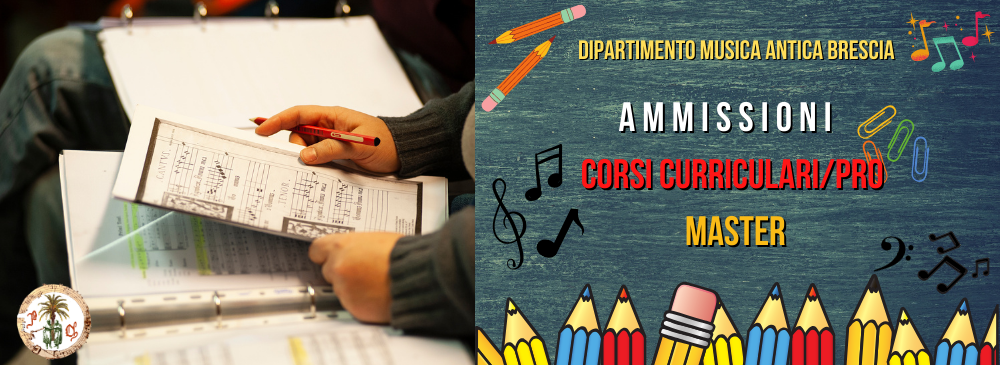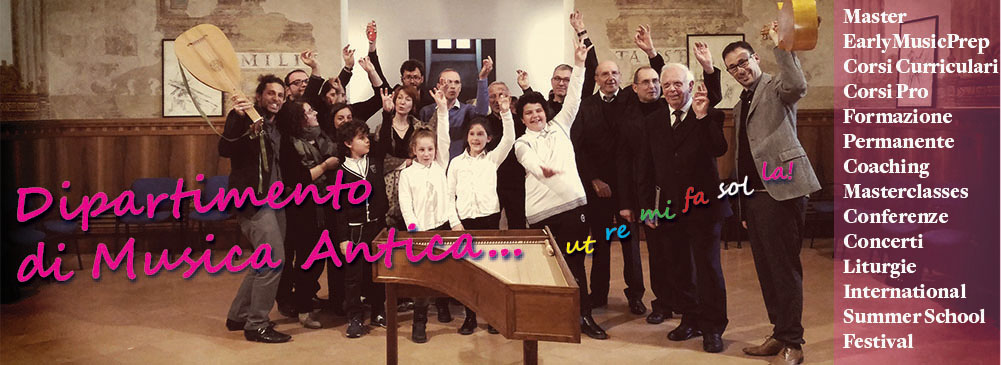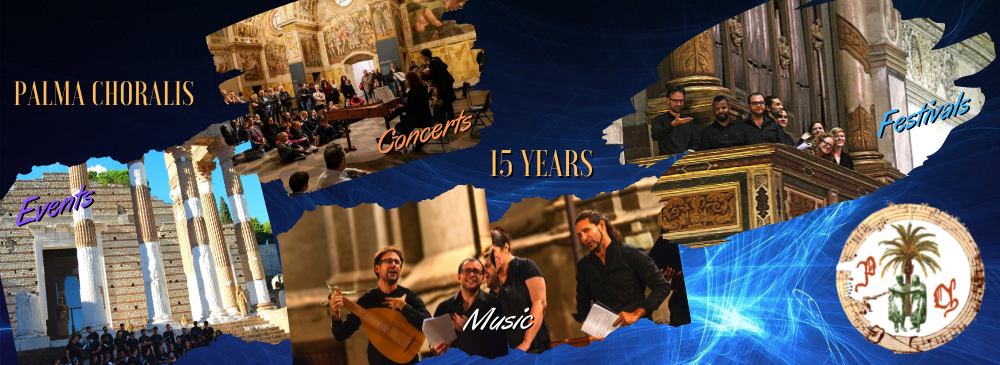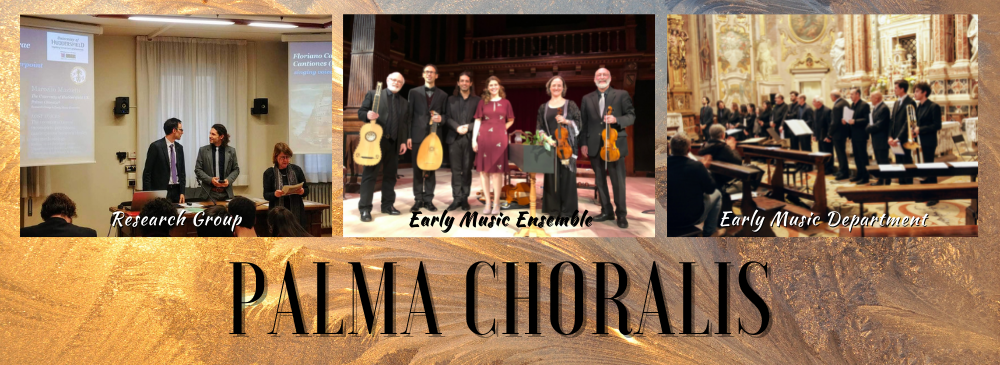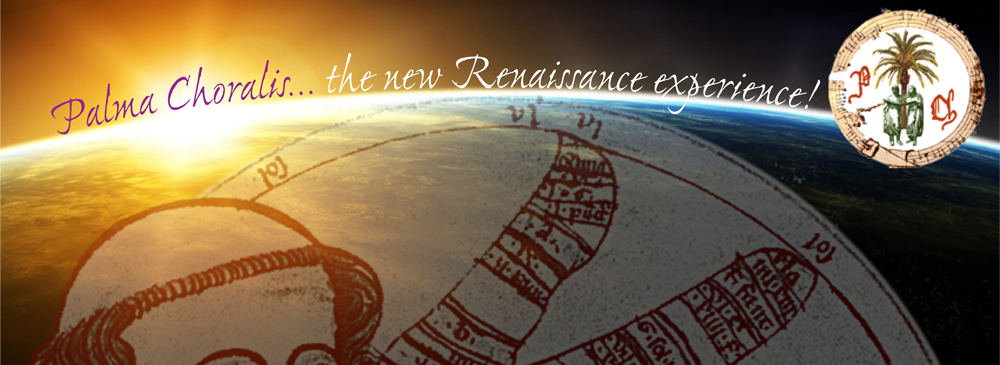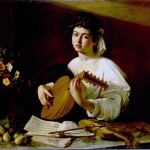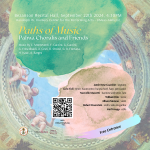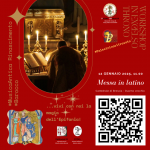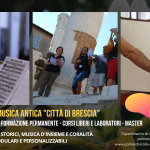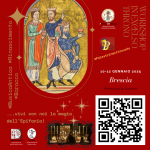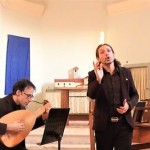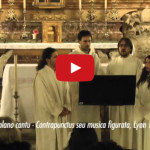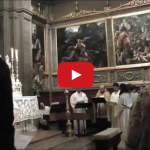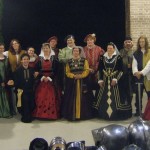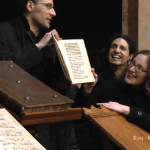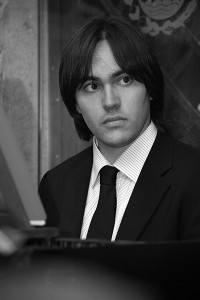 The harpsichordist and conductor Isaac Alonso de Molina (Valencia, 1980) prepared for his career with a wide ranging classical music training (graduating from the Conservatory of Valencia in 2001 and 2002 in four major subjects: piano, cello, chamber music and music theory), and hereafter combined a professional career (as keyboard player in the Orchestra of Valencia and teaching improvisation at the Conservatory of the same city) with private studies on composition and conducting, also attending diverse courses and seminars on musicology, music theory and historical performance practice.
The harpsichordist and conductor Isaac Alonso de Molina (Valencia, 1980) prepared for his career with a wide ranging classical music training (graduating from the Conservatory of Valencia in 2001 and 2002 in four major subjects: piano, cello, chamber music and music theory), and hereafter combined a professional career (as keyboard player in the Orchestra of Valencia and teaching improvisation at the Conservatory of the same city) with private studies on composition and conducting, also attending diverse courses and seminars on musicology, music theory and historical performance practice.
After developing a strong interest towards Early Music and historically informed performance, he moved to The Netherlands in 2007 to study at the Royal Conservatory of The Hague, where he further graduated in harpsichord with Jacques Ogg. At the same time he undertook an independent task of comprehensive historical research and documentation, on which he bases his perspective on musical praxis. He was subsequently awarded the degree of Master of Music, specializing in historical conducting techniques (maestro di cappella / maestro al cembalo) under the additional guidance of teachers like Peter van Heyghen, Fabio Bonizzoni and Ton Koopman, and as a fellow of the Graduate Program of Fundación CajaMadrid in 2011-2013.
In the last years he has performed from plainchant to XIXth century symphonic music, including Medieval and Renaissance polyphony, instrumental music, concerted sacred music, keyboard solo music, chamber repertory, Baroque opera, etc. always with an unconditional approach to the sources as starting point. He has taken part in festivals in Spain, Portugal, Italy, Germany and The Netherlands. He’s founder and director of the ensemble La Academia de los Nocturnos, with which he focuses on Spanish Renaissance and Baroque music. He’s founding member of Cantores Sancti Gregorii, specialized in the Medieval and Renaissance sacred repertory (Audience Prize of the Fabulous Fringe of the Utrecht Festival 2014), and regular colaborator of the ensembles Palma Choralis (Italy), Ars Lusitana (Portugal) and La Danserye (Spain). He also founded The Eroica Project, orchestra with which he performed Beethoven’s symphonies no. 1-3 on period instruments in 2012-2013.
Presently he teaches at the Royal Conservatory of The Hague, and has also been invited to teach and lead projects in other Dutch conservatories such as Amsterdam, Utrecht and Tilburg. While living and working in The Netherlands, he continues striving for a greater appreciation of Early Music repertories in Spain, and contributing to widen the knowledge of historically informed performance practices: in 2012-2014 he organized three successive editions of a summer course in Valencia, and from 2014 he teaches a sacred polyphony workshop in the Medieval/Renaissance Music course of Morella.


